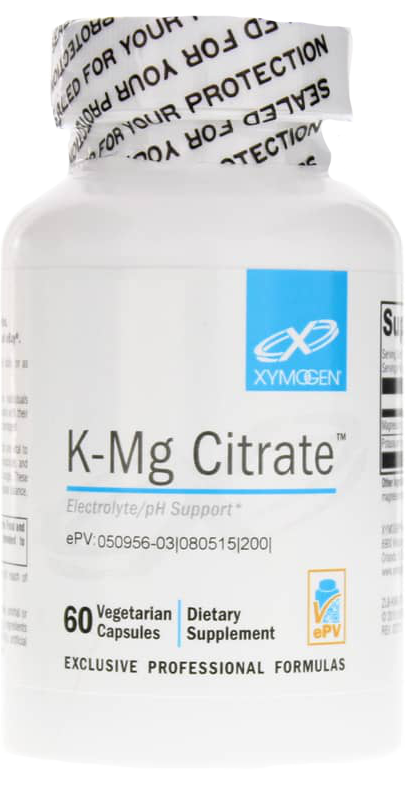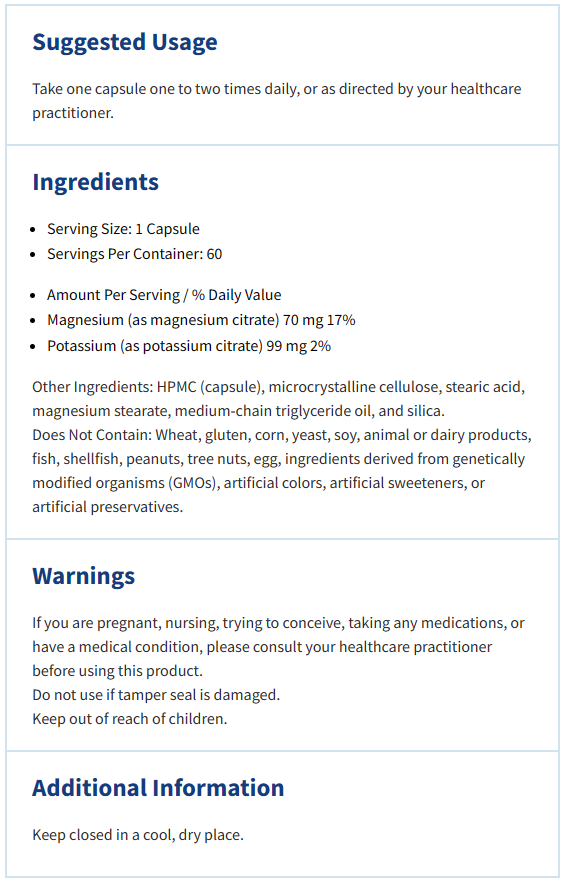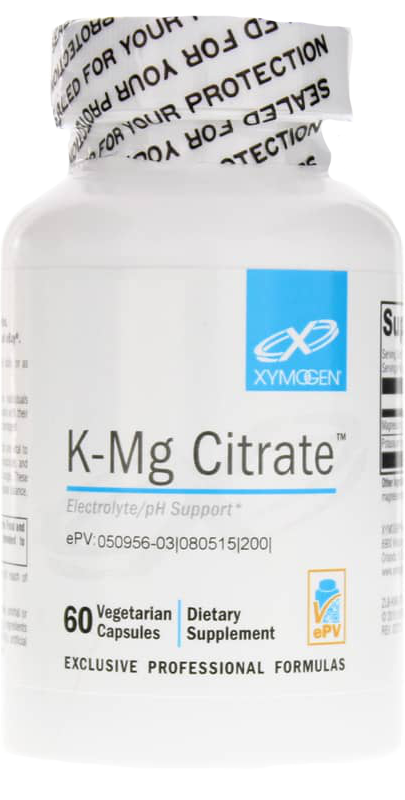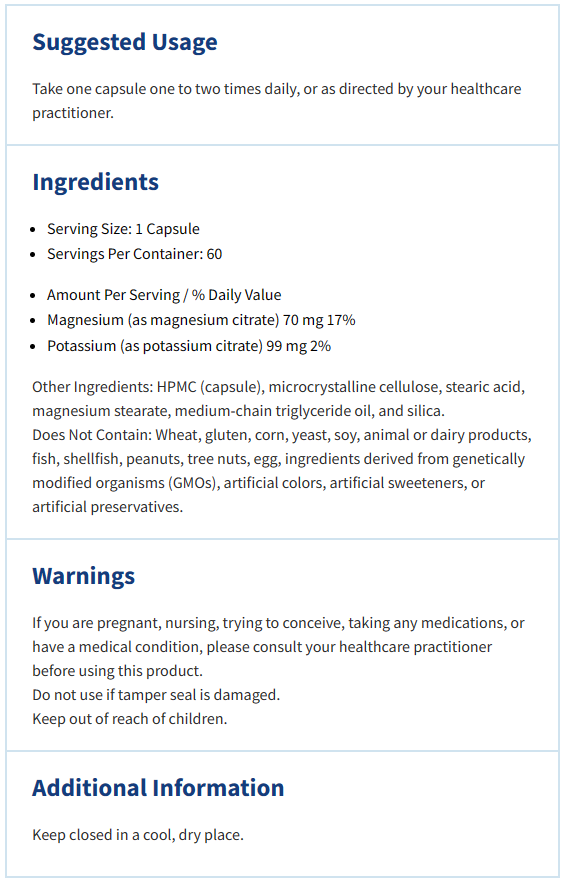

This formula provides two intracellular cations that are vital to maintaining healthy muscle contractility, nerve conduction, and already healthy blood pressure. These minerals help maintain healthy electrolyte and acid-base balance, which supports bone and kidney health among other benefits.
Hypokalemia Causes and Concerns: Hypokalemia (low blood potassium) can result from excessive sweating, vomiting, and diarrhea, or the chronic use of any of a wide variety of pharmaceuticals that cause urinary loss of potassium. Some examples of these include the use of OTCs (eg. aspirin, sodium bicarbonate, laxatives; prescription drugs, such as non-potassium-sparing diuretics and steroids and chemotherapeutic drugs, such as cisplatin.
Hypomagnesemia Causes and Concerns: Hypomagnesemia (low blood magnesium), similar to hypokalemia, is often seen in alcoholism, severe or prolonged vomiting or diarrhea, as well as in type 2 diabetes where a low magnesium level is thought to cause renal impairment sooner than expected. Besides the obvious cause of malabsorption, low magnesium levels may occur due to cirrhosis of the liver, pancreatitis, inflammatory bowel disease, or renal impairment. Low blood magnesium level is often concurrent with a low potassium level in the blood. a. Not all forms of magnesium are appropriate for oral replacement. For example, the solubility, absorption, and bioavailability of magnesium carbonate is limited, and magnesium oxide is likely to cause diarrhea when used in the dose needed for replacement.
Calcium and the Kidneys: The excretion of calcium in the urine through the kidney is a matter of concern, especially in individuals who are immobilized. A 3-year, prospective, placebo-controlled, double-blind study (n=64) demonstrated that oral supplementation of potassium-magnesium citrate provided a significant benefit in terms of calcium salt-related kidney health [1]. Another study demonstrated that the combination of these two minerals increased urinary pH and chelated the calcium, as well as decreased undissociated uric acid concentration [2].
Citrate: Although the amount per capsule in this formula is not considered significant, citrate is considered protective because it forms soluble complexes with calcium ions and reduces crystallization and aggregation [3].
References
Ettinger B, Pak CY, Citron JT, et al. Potassium-magnesium citrate is an effective prophylaxis against recurrent calcium oxalate nephrolithiasis. J Urol. 1997 Dec;158(6):2069-73. [PMID: 9366314]
Another study demonstrated that the combination of these two minerals increased urinary pH and chelated the calcium, as well as decreased undissociated uric acid concentration.
Caudarella R, Vescini F. Urinary citrate and renal stone disease: the preventive role of alkali citrate treatment. Arch Ital Urol Androl. 2009 Sep;81(3):182-7. [PMID: 19911682]
The Healthmasters Standard
GMP Certified
Facility
Proudly Made
in the USA
Non-GMO
Certified Formula
Gluten-Free &
Soy-Free
Third-Party
Lab Tested
No Artificial
Additives
or Preservatives

